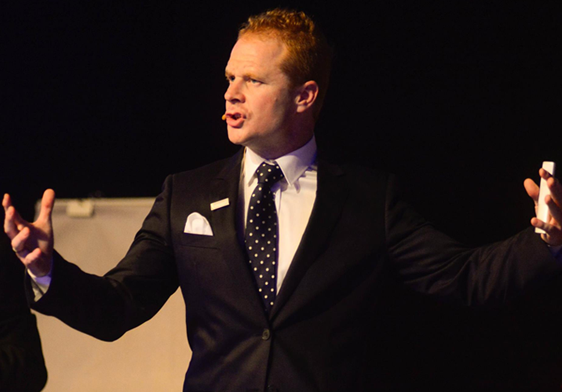At a glance
- Having a growth mindset means adopting an approach of continuous learning and humility in the face of failure. It means having faith in the ‘not yet’ rather than the ‘tyrannical now’.
- By embracing challenges, practising self-reflection, seeking out feedback, and cultivating a passion for learning, you can develop a growth mindset that will serve you well throughout your life.
In a world of meritocracy and competition, what is the determinant of success and well-being? Most people, somewhere around their 30s, start ascribing a sense of finality to their personality and life. As a result, in a few years, they feel stuck, stagnated and unable to truly live. This feeling is a result of a lack of a growth mindset. So what exactly is a growth mindset, and how can one develop it?
What is a growth mindset?
Dr Carol Dweck, a psychology professor at Stanford University, in her seminal book, “Mindset: The New Psychology of Success,” introduces the concept of a growth mindset, which suggests that individuals who believe their abilities can be developed through hard work and dedication are more likely to achieve their goals than those who believe their abilities are fixed.
She emphasises the power of ‘not yet’ as opposed to the tyranny of ‘now’.
A growth mindset is essentially an antithesis of finality and extremes. It’s a mindset that something that is not yet present can be built and developed tomorrow by hard work, perseverance, and dedication. It doesn’t catastrophise and bully on what is lacking in the ‘now’. It doesn’t inflict tyranny on us over our shortcomings and inadequacies. Rather, it encourages us to be hopeful and embody a certain level of faith in our journey to self-improve. Essentially, having a growth mindset means embracing challenges, persisting in the face of obstacles, and learning from feedback and criticism.
This mindset contrasts with a fixed mindset, which is the belief that one’s abilities and intelligence are fixed and cannot be changed. Having a fixed mindset means the person has succumbed to conditioning and sees no point in continued efforts and activity towards a different outcome.
Why is having a growth mindset necessary, and how does it differ from a fixed mindset?
As a life coach in Australia, I’ve seen time and again how developing a growth mindset can help people live a full life. For one, it can lead to increased resilience and adaptability in the face of challenges. When you approach challenges with a growth mindset, you see them as opportunities to learn and grow rather than insurmountable obstacles. Having a growth mindset can lead to increased motivation and achievement, as well as self-compassion in times of failure. When you believe that your efforts can make a difference, you are more likely to put in the hard work necessary to achieve your goals.
Here’s how a growth mindset differs from a fixed mindset when it comes to life and work:
Effort:
Be it in our professional or our personal lives, most things require effort. And not all efforts yield immediate and desirable results. Sometimes you have to stay put and keep making those efforts to see incremental and long-lasting benefits. A fixed mindset makes it hard to keep making efforts without keeping count. Having a growth mindset means efforts are learning steps, and even if the outcome right now is not desirable, one is willing to take some bets and keep at it.
Challenges:
A fixed mindset sees an obstacle or a challenge as a failure to get things right the first time. The truth is, anything worth doing means failing a lot. Having a growth mindset helps us see challenges as opportunities, as necessary steps on the learning curve. A fixed mindset may paralyse you into inaction and inertia and make you question everything the moment a challenge arises. But a growth mindset will take the pressure off and lead you to focus on the process than the outcome. A growth mindset enables you to create good systems so that goals become a pleasant byproduct.
Mistakes and feedback:
A fixed mindset is very egocentric, driven by the ‘I’. So any mistake or failure is taken very personally, hence creating a lot of conflict between any two parties. But a growth mindset craves feedback and constructive criticism because that’s the only way to speed up your learning process. Having a growth mindset means that you can actively improvise and optimise based on your mistakes and feedback because you don’t take it personally.
How to develop a growth mindset?
Developing a growth mindset is a continuous process and worth it. Once you’ve trained your perspective-shifting muscles, you’ll experience a richer and fuller life. Here are some strategies that can be helpful:
1. Embrace challenges:
Rather than shying away from challenges, actively seek them out. Approach new tasks or situations with curiosity and a willingness to learn. A challenge is not a judgment of your abilities. It’s an opportunity to grow and expand. You must learn to see it that way, and you’ll rid yourself of the fear of failure.
2. View failures as opportunities for growth:
When you experience a setback or disappointment, don’t view it as evidence of your limitations. Instead, look for lessons that can be learned from the experience and use them to inform your future actions. Mistakes are like progress in the sense that you only make them when you are in the process. If you haven’t done anything, you most likely haven’t failed at anything. The only people who don’t make mistakes are the ones who are dead. So give yourself permission to make mistakes. They are a sign of progress and a developed growth mindset.
3. Practice self-reflection:
A fixed mindset is often a byproduct of negative self-talk and preconceived notions. Regularly take the time to reflect on your experiences and how they have shaped you. Ask yourself questions like, “What did I learn from this experience?” or “What could I have done differently?” Offer yourself an alternate and empowering internal dialogue that drives you towards a growth mindset.
4. Seek out and give constructive praise as well as criticism:
Instead of shying away from criticism, actively seek out feedback from others. Use their insights to inform your growth and development. Constructive praise is different from praising someone’s intelligence. Instead, praise the specifics of their process or strategy. Similarly, criticism of one’s traits is rarely helpful. Constructive criticism points out what can be done better, and that is how you can develop a growth mindset.
5. Cultivate and pursue genuine curiosity:
Approach every situation as an opportunity to learn something new. When you have a curious outlook towards life, the only you know for sure is that you don’t know it all. This helps cultivate a genuine love of learning. Whether it’s reading a book, taking a course, or simply trying something new, cultivate a love for learning and personal growth. It’ll not just give you a sense of meaning, but you’ll see yourself developing a growth mindset.
6. Avoid the blame game:
When you blame external circumstances for your situation, you adopt a fixed mindset. Developing a growth mindset means understanding the difference between what is beyond your control and what you can redirect your energy and attention towards.
For e.g., A parent might not be supportive of your career choices. They may dismiss your progress, and it can wreak havoc on your mental peace. But if you detach their response from your action, you’ll be able to set realistic expectations for yourself. You’ll see that their feelings are not your responsibility. You won’t be as devastated by a minor setback in your professional journey.
How to maintain a growth mindset?
Once you have developed a growth mindset, it’s important to maintain it. Here are some strategies that can help:
Setting systems instead of goals:
As a life coach in Australia, I have nothing against goals. But speaking from my long-standing experience, goals can often cause disappointments. Yes, you can maintain a growth mindset by setting higher and clearer goals. It can even help you stay motivated and focused for a while. But goals are highly linked to a one-time outcome in the near future. Whereas systems help you refine your process, stay disciplined and put the pressure off of outcomes.
Having a good system for your goal helps you avoid disappointment and overwhelm and develop a growth mindset in the long run.
Practice self-care:
I am all up for hard work and pushing your boundaries. But I advise my clients to stay off the ‘hustle hard’ loop. One, because it’s hardly sustainable in the long run. Secondly, because most people are not aware of burnout and they feel long-term stress is not just inevitable, it is necessary to succeed. During my stress management coaching programs, the topic of growth comes up very often and especially in this context.
The answer is in practising self-care. Taking care of yourself physically, mentally, and emotionally can help you stay resilient in facing challenges. It can help you be in tune with what you are feeling and take steps when things are moving too fast. Setting boundaries, taking time off for self-care and knowing how to respect your boundaries can help you develop a growth mindset because you allow yourself love and warmth.
Celebrate progress:
When you are so fixated on chasing the next goal, it’s easy to forget to celebrate yourself. To your inner child, this ‘cheering up’ is incredibly important. A life coach can help you see why and how you need to be more kind and playful to your inner child. Rather than focusing solely on the end goal, take time to celebrate the progress you’ve made along the way.
When you reduce your journey to just ‘getting things done’, you feed into your inner critic. You amplify its voice the moment you falter and make a mistake. But when you know how to celebrate your progress, you connect with your creative, playful self that actually gets the work done for you.
Applying a growth mindset in different aspects of life
Applying a growth mindset in different aspects of life can lead to significant personal and professional growth. Here are some examples:
Career: Embracing challenges and seeking out new learning opportunities can help you stay competitive in the job market and advance your career.
Relationships: Viewing challenges in relationships as opportunities for growth can help you communicate more effectively and deepen your connections with others.
Health and wellness: Cultivating a passion for fitness can lead to improved physical and mental health. You can enjoy better, live disease free and experience more of life.
In conclusion, developing a growth mindset can lead to increased resilience, motivation, and achievement in all areas of life. By embracing challenges, practising self-reflection, seeking out feedback, and cultivating a passion for learning, you can develop a growth mindset that will serve you well throughout your life.
Remember to set goals, practice self-care, celebrate progress, and surround yourself with supportive people to maintain your growth mindset and continue to grow and develop as a person.
On the path to developing a growth mindset, it is important to embrace diverse experiences and challenges. For example, exploring the dynamic world of online gaming can be an amazing addition to your experience. Ice Casino with its exciting games offers an enjoyable way to think strategically and have fun.
As a life coach in Melbourne, I have seen firsthand the power of a growth mindset in helping individuals overcome obstacles, achieve their goals, and live a full life. By developing a growth mindset and applying it in different aspects of your life, you can unlock your full potential and lead a life of purpose and meaning.
If you’re looking for guidance and support in developing a growth mindset, consider working with a life coach. As a life coach in Melbourne, I help individuals cultivate a growth mindset and apply it in their personal and professional lives. Through one-on-one coaching sessions, I provide guidance and support as you work towards your goals and overcome obstacles. Together, we can develop a growth mindset that will help you achieve your full potential and live a life of purpose and meaning. Book your free discovery session now!
























